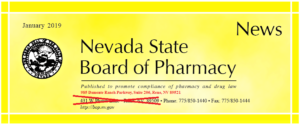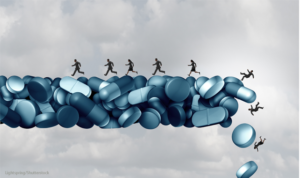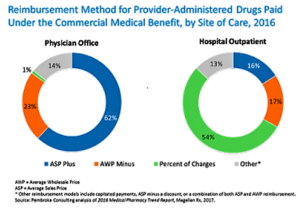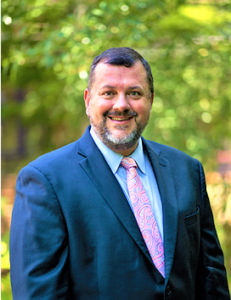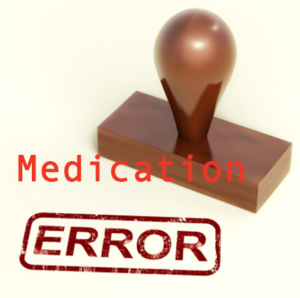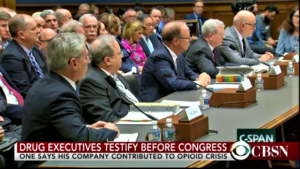- Nevada State Board of Pharmacy News (bop.nv.gov)
Board Members
Leo Basch, PharmD, RPh, Las Vegas
Robert Sullivan, Reno
Jason Penrod, PharmD, RPh, Reno
Kevin Desmond, RPh, Reno
Wayne Mitchell, PharmD, RPh, Carson City
Melissa Shake, PharmD, RPh, Las Vegas
Jade Jacobo, PharmD, JD, RPh, Las Vegas
Retirement of the Executive Secretary
- Larry L. Pinson, PharmD, RPhNew Reno Office -
985 Damonte Ranch Parkway, Suite 206, Reno, NV 89521.
Board Member UpdateNevada Medicaid Initiates Antibiotics Prior Authorization Criteria - Nevada Department of Health and Human Services
National Pharmacy Compliance NewsFinal Guidance Documents Address FDA Policies Related to DSCSA
First FDA-Approved Drug Containing Extract From Cannabis Plant to Be Placed in Schedule V
ASHP Guidelines Provide Recommendations for Preventing Patient Harm From Medication Errors
FDA’s Final Guidance Documents Address Compounding and Repackaging of Radiopharmaceuticals
Pharmacy Toolkit Encourages Conversations With Patients About Prescription Opioids
Biosimilars Added to FIP’s Policy on Pharmacists’ Right to Substitute a Medication
FDA Offers CE Course on Reducing Hypoglycemic Events in Patients With Type 2 Diabetes - Leveraging Health Literacy and Patient Preferences to Reduce Hypoglycemic Events in Patients with Type 2 Diabetes
- 5 Key Questions Pharmacy Owners Should Ask Themselves (pharmacytimes.com)
Pharmacy owners who ask themselves the following 5 questions on a weekly basis will find that this exercise helps them create the pharmacies that they want, ones that matter in their communities and ones that help create lifestyles that benefit their families.
- Is what got me where I am today going to get me where I want to go tomorrow?
- Have I differentiated myself in the marketplace?
- Am I organizing my time, effort, and other resources around winning strategies and great marketing to build the future I want, or am I still clinging to the status quo, which is based on yesterday’s breadwinners and today’s mistakes?
- Am I focusing each hour of every single working day on those few activities that contribute the most to increasing cash flow and profits?
- What do potential patients value most that they are not finding from me and are seeking from my competitors?
- The Other Side of Opioid Limits (drugtopics.modernmedicine.com)
Proponents argue that limits reduce the risk of addiction, but are they keeping pharmacists from caring for their patients?... As the opioid crisis worsens, pharmacies, pharmaceutical manufacturers, and legislators are scrambling to help solve the problem. Recently, those efforts have focused on limiting opioid supplies. But in the effort to prevent unnecessary medications, are pain patients getting left behind?...Express Scripts and CVS Caremark recently announced a seven-day supply limit, and PhRMA...supported a seven-day limit...one-size fits all approach and will supplant providers’ clinical decision-making and the needs of patients who have legitimate need for these medications...payer limits restrict patients with legitimate pain management needs from accessing opioids. Those limitations...will force patients not at risk of abuse or misuse to work with their prescriber and pharmacist—which will cost the health-care system and “significantly” impact patients with limited resources, physical restrictions, or transportation issues...
- Latest Data Show That Hospitals Are Still Specialty Drug Profiteers (drugchannels.net)
The new 2016 Medical Pharmacy Trend Report??...released...As always, the report includes a boatload of useful data on medical benefit spending and claims….Unfortunately, the latest edition also shows how hospitals continue to earn outrageous profits on specialty drugs. Commercial payers still use reimbursement approaches that permit hospitals to inflate specialty drug costs by thousands of dollars per claim...These hospital mark-ups translate directly into higher drug spending—regardless of how manufacturers set list prices. Using some fairly conservative assumptions about Remicade, I show below how hospitals are earning thousands of dollars more than the drug’s manufacturer does...Meanwhile, health plans are struggling to shift patients from hospital outpatient settings to physician offices—where costs are lower, at least until those sites are acquired by hospitals.
- APhA looks to alleviate increasing pressures of the profession (drugstorenews.com)
What I’m(Michael Hogue, president-elect of the American Pharmacists Association) hearing from these recent graduates, as well as from seasoned pharmacists, is:
- Public and private payers are looking to pay the lowest price for prescription drugs;
- The community pharmacy business model no longer supports sufficient staffing, leaving little time for patient care, and in some cases jeopardizing patient safety;
- Pharmacists, now largely employed by a corporate entity rather than through private practice, feel they have little control over their practice environment and professional judgment;
- The number of pharmacists in many markets is leading to fear among some of losing their jobs or experiencing lower wages if they do not meet productivity metrics as more technical tasks are delegated to technicians;
- Full-time employment is sometimes hard to come by as a pharmacist; and
- Young pharmacists have tremendous personal debt from college.
The American Pharmacists Association...adopted a policy on the pharmacist workplace environment and patient safety. The policies serve not only as guiding statements and principles for the profession, but are frequently referenced when key policy and legal decisions are at play. In addition...APhA board of trustees has incorporated pharmacist well-being initiatives as core to our strategic plan. Among other efforts, we are building tangible resources to assist individual pharmacists with practice challenges, professional satisfaction, recognition and personal well-being...APhA is working with other professional organizations and employers to seek legislative changes at the state and national levels that will result in recognition of pharmacists as providers of care. Coupled with changes that remove unnecessary barriers to the use of technologies and technicians, this will lead to new opportunities for the patient care we are capable of providing, allowing the business model to shift.
- It’s Time for Pharmacists to Carve Out a New Role (drugtopics.com)
Pharmacists and other healthcare professionals have to reinvent themselves as healthcare becomes more of a retail business. With the threat of new competition, the pressure for pharmacists to add value in healthcare is mounting...Ensuring the appropriate use and management of specialty pharmaceuticals is one area in which pharmacists can offer unique and necessary expertise. These medications will have a profound impact on the practice of pharmacy over the next ten years as they consume more of the healthcare dollar. They will affect all pharmacy practice settings...accelerating the importance of medication management to ensure the appropriate use of these therapeutic agents...The majority of specialty pharmaceuticals are distributed and administered in the physician’s office, an outpatient setting, or as home infusion...The role of the pharmacist in the physician’s office will emerge as a way to manage patients taking certain specialty medications...patients taking specialty pharmaceuticals represent only 1% of the patient population, yet, amazingly, they represent 30% of total drug spend...healthcare will need a different approach to the optimal dispensing of specialty pharmaceuticals...The industry will need creativity and focus to demonstrate just how far specialty pharmaceuticals can take us...The role of the pharmacist will be critical as specialty pharmaceuticals consume more of the healthcare dollar...
- Specialty Pharmacy Accreditation: To Be or Not to Be, That is the Question (specialtypharmacytimes.com)
Defined in the broadest sense, accreditation means the action of officially recognizing someone as having a particular status or being qualified to perform a particular activity. This definition points to the idea that the act of accreditation provides an individual or organization with an official qualification to perform said duty...The Alphabet Soup of Accreditation...URAC, ACHC, TJC, CPPA: Each of these combinations of letters represent a different accrediting body used by specialty pharmacies. There is not a single authoritative body requesting consistent data reports and patient outcomes that a specialty pharmacy provider (SPP) can utilize. Instead, there is a mix of multiple bodies requesting different kinds and different levels of data...Although the size of the pharmacy and the chosen accrediting body changes the cost for accreditation, it typically costs the pharmacy tens of thousands of dollars each time accreditation is given. And with the growing trend of pharmacies requiring more accreditations, that price is likely to rise...Why is it necessary to have at least 4 major accrediting bodies influencing the behavior of specialty pharmacies?
- How to Prevent the Top 4 Medication Errors (drugtopics.com)
Medical errors of all kinds, including medication errors, are now the third highest cause of death in the United States and may be responsible for 10% of all deaths in the country, according to a 2016 study by Johns Hopkins Medicine. According to the National Academy of Medicine, preventable medication errors harm 1.5 million Americans annually and cost hospitals an additional $3.5 billion each year...“I think the problem is becoming worse because this is a complex medical system that we have,”...Strategies to prevent medication errors in recent years include a move to electronic prescribing and adding barcodes to drug products. But experts say these efforts have not eliminated the need for vigilance among pharmacists, technicians, and other healthcare professionals in the community and hospital setting. Here’s more on the actions pharmacists need to take to avoid some of the most common medication errors.
- Processing Errors
- Dosage Errors
- Care Transition Errors
- Alert Fatigue Errors
- Other Errors
- Technology on the Horizon
- Major drug distributors downplay contribution to opioid crisis in testimony before Congress (cbsnews.com)
The heads of five major drug distribution companies downplayed their contribution to the opioid crisis...while testifying before a Congressional subcommittee tasked with investigating the epidemic spurred by abuse of opioids. Their testimony drew bipartisan wrath and one Republican suggested prison terms for some company officials...Miami-Luken CEO Joseph Mastandrea told the House panel that his company played a role in the opioid crisis, but executives from the other four drug distributors demurred saying the responsibility lied with prescribers and pharmacists more than it did with distributors...While distributors have been responsible for reporting suspicious orders for more than 40 years, some told members of Congress their screening systems had failed...AmerisourceBergen, Cardinal Health, and McKesson -- often known as the big three drug distributors, shipping 80 percent of prescription drugs in the United States, say their current systems for detecting suspicious orders has been greatly improved in recent years, relying more on algorithms to automatically detect issues...
- Pharmacies front and center as Florida preps for Hurricane Irma (pharmacist.com)
The pharmacy community is working to make sure Florida residents are prepared as Hurricane Irma bears down on the state. Gov. Rick Scott authorized pharmacies to dispense up to 30-day emergency prescription refills to patients...In addition, CVS Pharmacy and Walgreens are emphasizing the importance being prepared by keeping prescriptions stocked, or at least on-hand. "Prescription preparedness is one of the most important steps individuals and families can take in the lead up to potentially severe weather, and CVS Pharmacy is working to ensure that our patients have the medications they need in advance of the storm," says CVS Health EVP retail pharmacy and supply chain Kevin Hourican. Walgreens is reminding patients to follow evacuation orders and get to a safe location before refilling their prescriptions, noting that all locations can access a patient's records and that the Walgreens app can be used to refill prescriptions and pick them up nearby.

